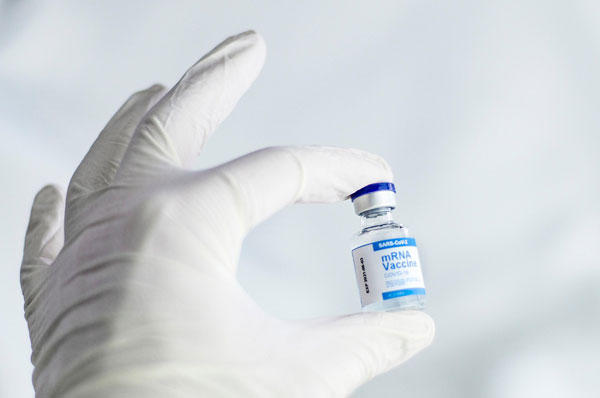mRNA COVID-19 vaccines may boost effectiveness of cancer immunotherapy, study finds

[Vaccine, Credit to Pixabay]
A new study published on October 23, 2025, in the journal Nature, reported that the mRNA COVID-19 vaccines, originally designed to prevent severe viral infection, may also enhance the effectiveness of immune therapy in certain cancer patients.
Led by the scientists at the University of Florida and MD Anderson Cancer Center, they analyzed the preclinical models and patient records to investigate whether COVID-19 mRNA vaccines can influence tumor response to ICI(Immune checkpoint inhibitor).
Checkpoint inhibitors are a class of immunotherapy drugs that unlock the immune system to fight cancer.
The research recorded that people with lung cancer and melanoma who were injected with an mRNA COVID-19 vaccine within 100 days of immunotherapy survived significantly longer than those who did not receive vaccines within the same period.
According to the data, vaccinated patients had a median survival of 37.3 months, compared to 20.6 months for unvaccinated patients, showing a nearly 17-month difference.
Moreover, the researchers analyzed the health records of over 5,800 cancer patients who were treated between the period of 2020 and 2024.
Patients received vaccination from either the Pfizer-BioNTech (BNT162b2) or Moderna (mRNA-1273).
These results support the consistent and statistically significant improvement in the vaccinated patients’ survival rates, especially for those who recently started their immune checkpoint inhibitor therapy.
Dr. John C. Alvarado, a senior oncologist at MD Anderson, expressed his surprise in an interview with the Washington Post, stating, “We were surprised by how strong the effect was.”
He further added, “This suggests that the vaccine’s stimulation of the immune system may actually prime it to respond more aggressively to cancer.”
Pembrolizumab and nivolumab, both checkpoint inhibitors, are the keystone for modern cancer treatment, as these drugs help the immune system to detect and attack the tumor cells, although the effectiveness may vary widely among individuals.
These novel findings suggest that mRNA vaccination may act like an immune system booster, which could contribute to improving patients’ response to these therapies.
The study suggests that the immune activation caused by the vaccine may make tumors more detectable to the immune system, allowing an enhanced anti-tumor response.
This hypothesis aligns with a former observation from the early vaccination period in 2021, when some oncologists found an unexpected positive reaction in certain cancer patients.
Although this finding highlights the positive effects of the mRNA vaccines, public health experts emphasize that they are not cancer treatments by themselves, but may be a valuable complementary tool.
Dr. Hannah Lee, an oncologist at the University of California, stated, “This doesn’t mean the vaccine cures cancer,” in a PBS NewsHour interview on October 23, 2025.
Pharmaceutical companies have already started to develop personalized mRNA cancer vaccines, and some of them have already entered clinical trials as early as 2024.
These vaccines aim to train the immune system and target specific tumor mutations.
Although further research is required, these findings suggest that innovations brought during the COVID-19 pandemic can lead to positive breakthroughs in cancer treatment.

- Yezi Jang / Grade 11
- Asia American International Academy

![THE HERALD STUDENT REPORTERS [US]](/assets/images/logo_student_us.png)
![THE HERALD STUDENT REPORTERS [Canada]](/assets/images/logo_student_ca.png)
